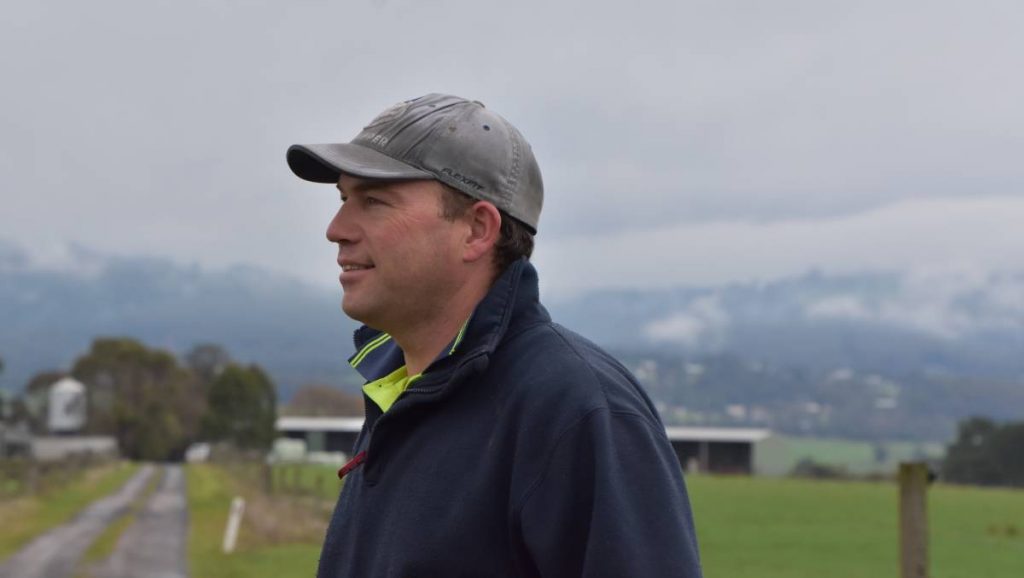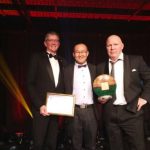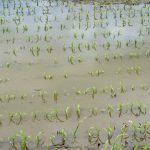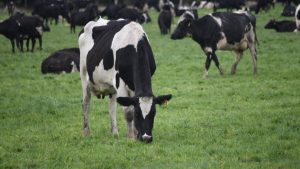
“I don’t want to be like that.”
A fit, tanned 40-year-old, Mr Anderson looks every inch a farmer but with the farm sold, his eyes are set on town life.
“Hopefully, I won’t be involved in ag at all,” he said.
An ambitious young couple with dairy in the blood, Mr Anderson and wife Jo bought their scenic Trafalgar East farm 14 years ago.
“I started farming as soon I could walk, I guess,” he said.
“Just the typical farm kid, kick around the farm before school and do chores when you get home.”
The mix of ambition and farming family know-how helped the Andersons weather many of the most turbulent years facing Australian dairy farmers.
“There was the Global Financial Crisis, the clawback, the price drops, no rain – one thing after another,” he said.
“We were highly leveraged, right on that 1 per cent all the time without enough room to move.”
Hit hard by the price collapse in May 2016, the Andersons struggled to recover.
“To help cope with the clawback, we exported 30 heifers to China and we’ve been rebuilding since,” he said.
Walking out of Fonterra’s supplier meeting following the price announcement, Mr Anderson decided something had to change and switched to supplying organic milk.
Even so, pressure continued to mount.
“That kind of pressure influences your professionalism,” he said.
“You start making cutbacks that affect profit and chasing off-farm work that divides your time and attention.”
Indeed, the Andersons were also running a hay and silage contracting business.
Just before Easter, the couple decided enough was enough.
Two weeks later, the property was sold and, in mid-July, the family will leave the farm for the last time.
“It was a bit overwhelming at the time but great on the other hand,” Mr Anderson said.
“We were not going any further into debt.
“Plenty of people have their places on the market for a year or more.”
Mr Anderson said friends and family had been very supportive.
“Once people found out we were selling, they came out of the woodwork saying they had the same intentions but weren’t ready to commit,” he said.
“They wanted to hear about our experiences and were looking for pointers on how to start.
“I was surprised by how many there were and that, often, they were people you’d think were going really well – the last you’d expect to be thinking that way.
“[They are] people who are tired of the margin and the work.”
The grapevine turned out to be a boon for Mr Anderson.
“Talk to your kids and the rest of the family, then network a lot,” was Mr Anderson’s advice for anyone considering leaving dairying.
“People asked what we were going to do and then job offers started to flow.
“That helped, it made it feel like we weren’t jumping out into the darkness.
“There are options and I can do something.”
He said he was looking forward to talking to people about things other than milk prices and rain.
“I’d say to anyone to have a look at a job site if there’s something you’ve ever wanted to do other than farming,” he said.
“Look at some of the things you can do that you’d never thought of and factor in an eight or nine-hour day.”
Mr Anderson is firmly focused on the future.
“I’ve done years of 15-hour days, seven days a week with family life smashed into that,” he said.
“I’m looking forward to having time off.”

























